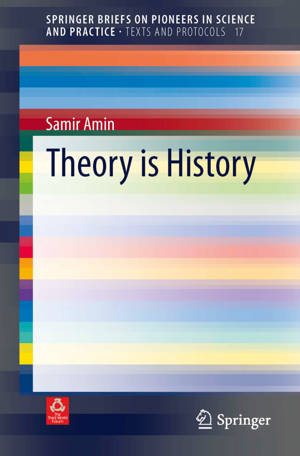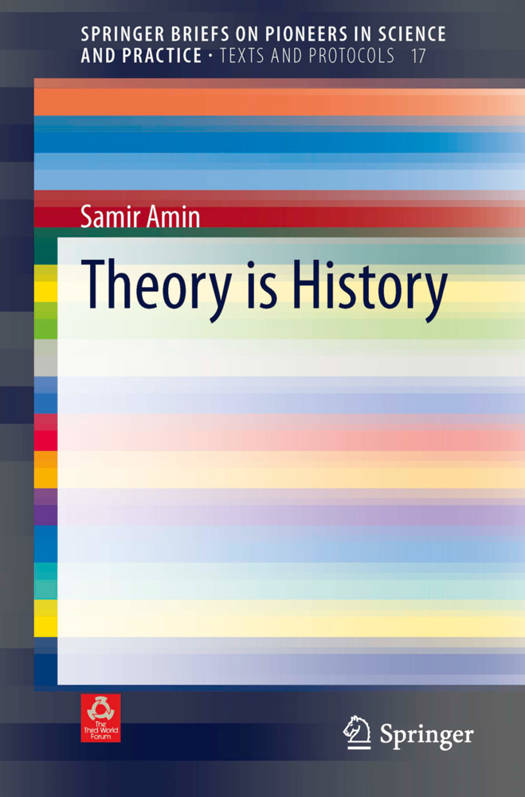
Bedankt voor het vertrouwen het afgelopen jaar! Om jou te bedanken bieden we GRATIS verzending (in België) aan op alles gedurende de hele maand januari.
- Afhalen na 1 uur in een winkel met voorraad
- In januari gratis thuislevering in België
- Ruim aanbod met 7 miljoen producten
Bedankt voor het vertrouwen het afgelopen jaar! Om jou te bedanken bieden we GRATIS verzending (in België) aan op alles gedurende de hele maand januari.
- Afhalen na 1 uur in een winkel met voorraad
- In januari gratis thuislevering in België
- Ruim aanbod met 7 miljoen producten
Zoeken
Theory Is History
Samir Amin
Paperback | Engels | SpringerBriefs on Pioneers in Science and Practice | Texts and Protocols | nr. 17
€ 53,45
+ 106 punten
Omschrijving
This book focuses on a central concept that "Theory is History", as the theory of capitalism can only be formulated on the basis of an analysis of its history. In contrast, bourgeois thinking replaces the analysis of historical capitalism with an abstract theory without any links to reality. "Economics", which is the theory of an imaginary system, then becomes an apologia intended to give legitimacy to the behaviour of the owners of capital. The author pays special attention to the globalization of the law of value. The individual chapters illustrate the author's thesis by focusing on the links between capital and land ownership, between modernity and religious interpretation, and on questions of the global expansion of capitalism, particularly the ways it has evolved in certain countries, in this case Russia and China. This anthology supplements the author's previous work, centred on the rise of the South-his reading of capitalism focusing on its imperialist nature.
Specificaties
Betrokkenen
- Auteur(s):
- Uitgeverij:
Inhoud
- Aantal bladzijden:
- 143
- Taal:
- Engels
- Reeks:
- Reeksnummer:
- nr. 17
Eigenschappen
- Productcode (EAN):
- 9783319038155
- Verschijningsdatum:
- 19/12/2013
- Uitvoering:
- Paperback
- Formaat:
- Trade paperback (VS)
- Afmetingen:
- 156 mm x 234 mm
- Gewicht:
- 226 g

Alleen bij Standaard Boekhandel
+ 106 punten op je klantenkaart van Standaard Boekhandel
Beoordelingen
We publiceren alleen reviews die voldoen aan de voorwaarden voor reviews. Bekijk onze voorwaarden voor reviews.









